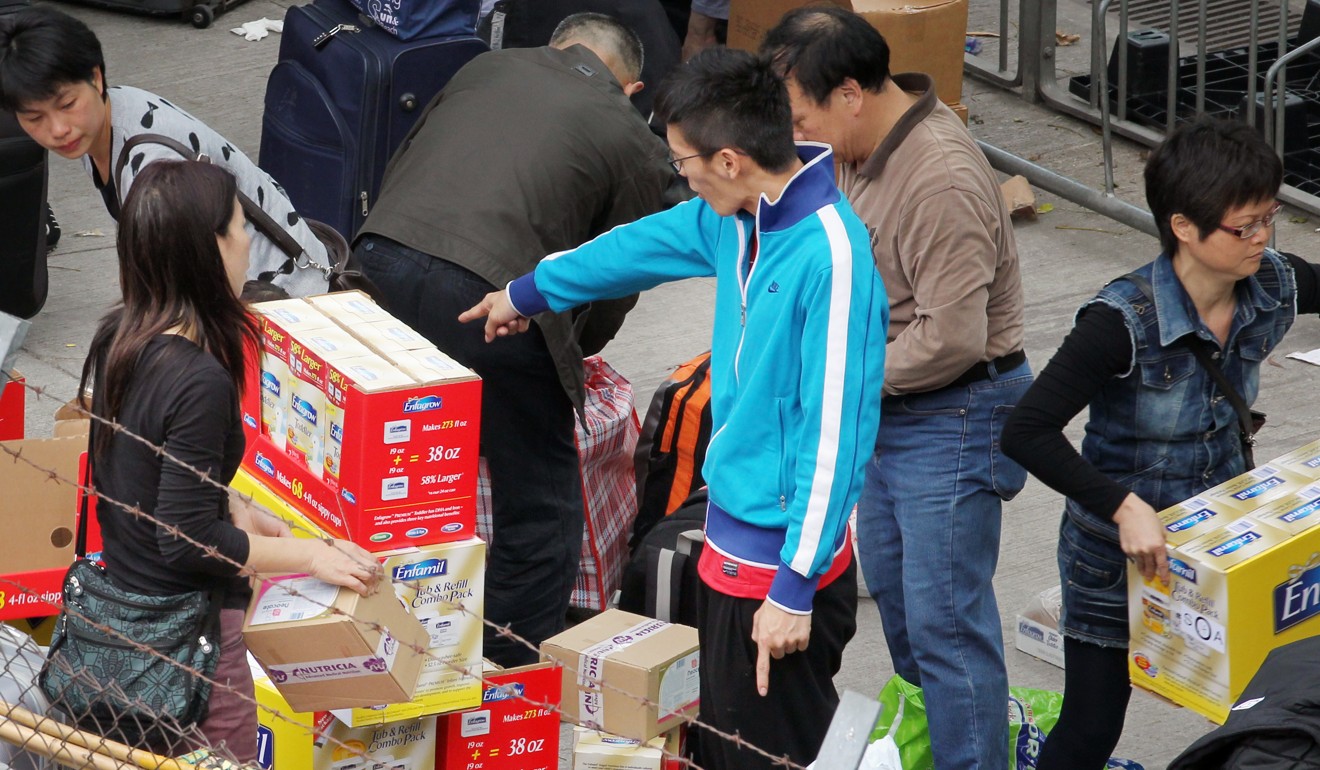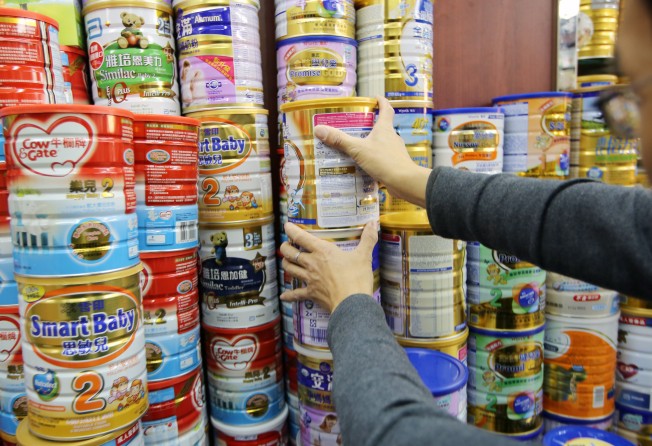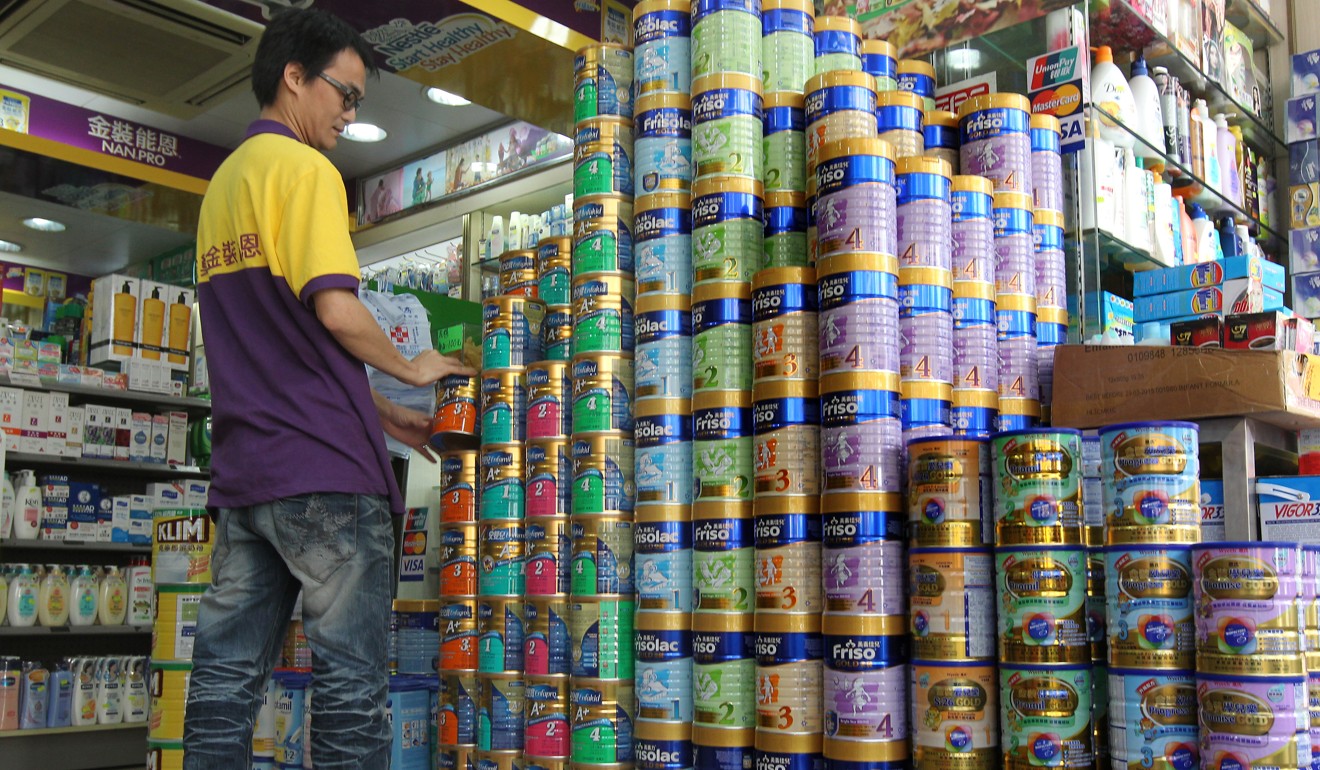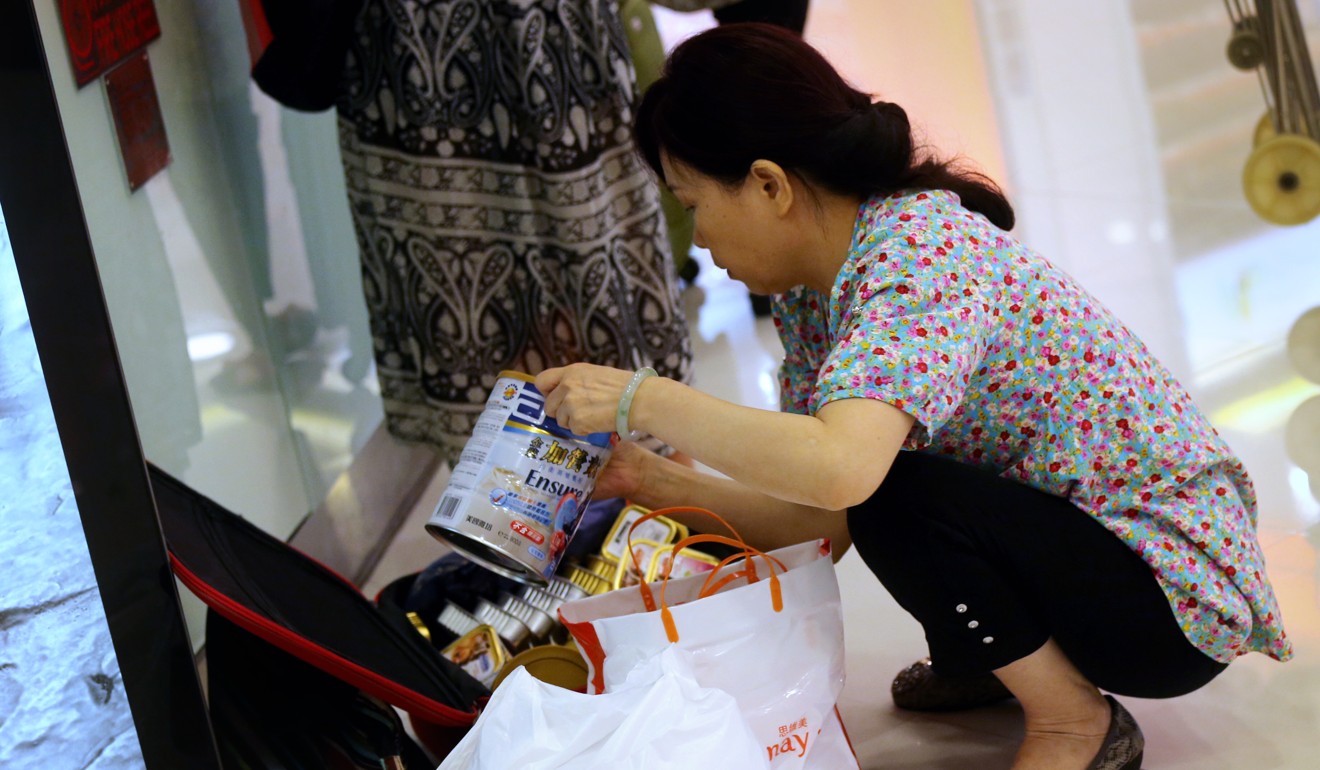
Hong Kong’s limit on baby milk formula to stay as fears grow demand from mainland China could cause repeat of shortage
- Documents filed to Legislative Council cite persistently high re-exportation of formula and no decrease in number of breaches to the law
- The ban was introduced in 2013 when parents complained of parallel traders leaving city with a serious shortage

A ban on people leaving Hong Kong with more than two tins of baby milk formula will remain indefinitely amid fears lifting it may cause repeat widespread shortages, the city’s health authority said.
The Food and Health Bureau said parallel trading activities were persistent and relaxing the ban may trigger increased demand from the ever-rising number of mainland Chinese tourists.
“We cannot rule out the possibility the powdered formula shortage, which disturbed local parents before the export control was implemented in 2013, would reoccur,” the bureau stated in a document submitted to the Legislative Council’s panel on food safety and environmental hygiene on Monday.

Under the ban, people aged 16 or older were only allowed to carry 1.8kg of infant formula – about two tins – within a 24-hour period.
The public generally is concerned about whether there would again be a severe imbalance of demand and supply
People with a licence issued by the Director General of Trade and Industry would be exempt.
The bureau did not say when the ban would end or be reviewed.
It was introduced in March 2013, when Hong Kong parents complained traders were causing shortages of certain brands.
Mainland China’s melamine-tainted baby milk formula scandal, which surfaced in 2008, triggered widespread demand for powder from outside markets.
Traders from both sides of the border took advantage of Hong Kong’s multiple-entry visa policy to buy tax-free goods for resale in mainland China.

A 2018 review of the ban, conducted by the bureau, found parallel trading activities were still persistent and driven by strong non-local demand.
It cited as evidence a continued rise in re-exportation of formula and no decrease in the number of breaches to the export restrictions.
An average of 70 per cent – 40 million kilograms – of all baby milk formula imported to Hong Kong was exported back out of the city every year between 2014 and 2018, according to the bureau.
During the same period, about 220,000 children under three consumed about 16 million kilograms of baby milk formula per year.
Since 2016, the bureau said, around 3,800 violations of the export ban had been recorded every year.

“With the growing number of mainland tourists to Hong Kong, the demand for powdered formula is anticipated to remain strong,” the bureau said.
There are still people commissioning individuals heading to the border to transport baby milk formula
“The public is concerned about whether there will again be a severe imbalance of supply and demand … [and] the majority support export control.”
Ronald Leung Kam-shing, spokesman for the North District Parallel Imports Concern Group, welcomed the government’s decision.
“We still see visitors and traders leaving for the border, each carrying two cans of powder,” he said. “Outside Sheung Shui MTR station, there are people commissioning individuals to transport formula [over the border].”
Sheung Shui is one of the last train stations on the East Rail line before the crossing to Shenzhen at Lo Wu.
The Hong Kong Infant and Young Child Nutrition Association said it would continue to cooperate and communicate closely with the government to ensure a stable and sufficient supply of powdered formula.
The association said its seven members, including Abbott Laboratories, Nestle Hong Kong and Wyeth (Hong Kong) Holding Company, had, since 2013, been reserving 1.65 million tins each month for Hong Kong and boosted hotline capacity by up to 50 per cent to handle purchase orders.